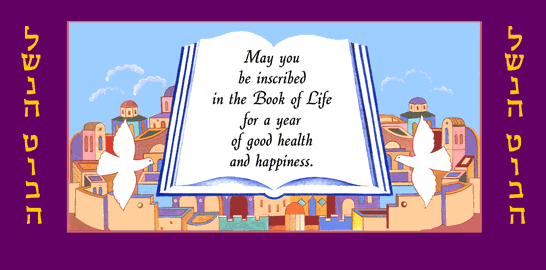

Rosh Hashanah is a Jewish holiday commonly referred to as the "Jewish New Year." It is observed on the first day of Tishrei, the seventh month of the Hebrew calendar, as ordained in the Torah, in Leviticus 23:24. Rosh Hashanah is the first of the High Holidays or Yamim Noraim ("Days of Awe"), or Asseret Yemei Teshuva (Ten Days of Repentance) which are days specifically set aside to focus on repentance that conclude with the holiday of Yom Kippur.
Rosh Hashanah is the start of the civil year in the Hebrew calendar (one of four "new year" observances that define various legal "years" for different purposes as explained in the Mishnah and Talmud). It is the new year for people, animals, and legal contracts. The Mishnah also sets this day aside as the new year for calculating calendar years and sabbatical (shmita) and jubilee (yovel) years. Jews believe Rosh Hashanah represents either analogically or literally the creation of the World, or Universe. However, according to one view in the Talmud, that of R. Eleazar, Rosh Hashanah commemorates the creation of man, which entails that five days earlier, the 25 of Elul, was the first day of creation of the Universe.
The Mishnah, the core text of Judaism's oral Torah, contains the first known reference to Rosh Hashanah as the "day of judgment." In the Talmud tractate on Rosh Hashanah it states that three books of account are opened on Rosh Hashanah, wherein the fate of the wicked, the righteous, and those of an intermediate class are recorded. The names of the righteous are immediately inscribed in the book of life, and they are sealed "to live." The middle class are allowed a respite of ten days, until Yom Kippur, to repent and become righteous; the wicked are "blotted out of the book of the living. Read more ...